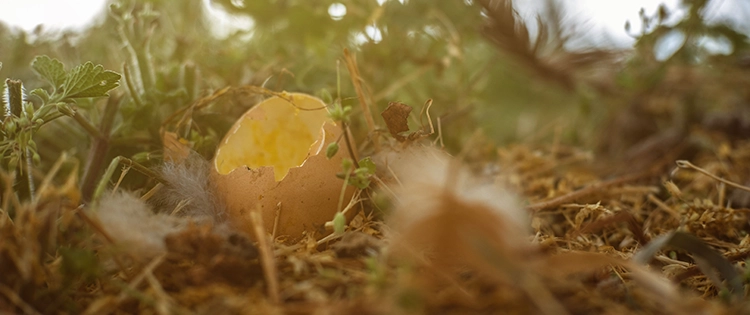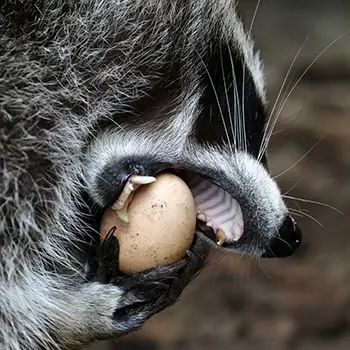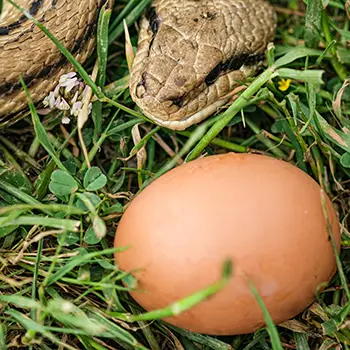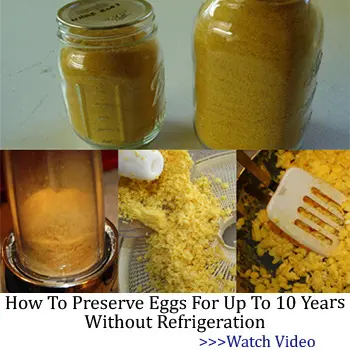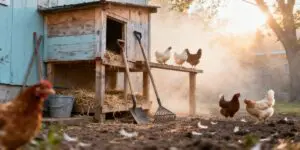Ah, the bounty of your work as a chicken keeper. You go out to your coop first thing in the morning and- wait a second, where are the eggs? Are the hens protesting, or has something terrible happened? You notice that the nests seem to be torn up. Your birds are unhurt, but something has definitely happened. Are there animals that are stealing chicken eggs?
Yes. You have an egg thief.
Yet how do you figure out how to stop them? How do you find out what species it is? Come with us today as we discover the dark underworld of egg theft and exactly how to get those little suckers back behind bars where they belong. The bars outside of your coop, that is. Let’s get started.
Rodents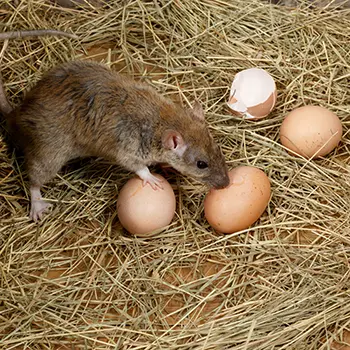
Though generally too large and bulky for mice, a large mouse infestation (which is common when owning poultry) will happily rip apart eggs, gnaw through eggs, and eat every egg accessible to them. These are examples of animals that are stealing chicken eggs. The same goes for rats, though they tend to find it much easier to deal with a large chicken or duck egg than a mouse will.
You’ll identify these rodents as your most likely culprit by the presence of their droppings. Mice and rats are both prolific when it comes to marking an area and will leave numerous bits of poop all over the edges of your coop, your nesting boxes, and probably in the nest itself.
If you find that your problem is mice, I recommend capturing one or two in an ethical, humane catch box. I also suggest euthanizing the mouse and encouraging your chickens to eat it. Once they have a taste for mice—and they easily take to such things as vigorous omnivores—you’ll see your mouse problem disappear pretty quickly. The same goes for rats. A harried rat being chased by a chicken, if not killed, will find somewhere else to eat out for the evening.
Raccoons & Opossums
Both of these predators shouldn’t be anywhere near your coop. These are the types of animals that are stealing chicken eggs and causing much bigger problems. Egg loss is the least of your worries if these climbing predators are making it into your coop. Place heavy-duty mesh or wood at the top of your coop to keep them out!
That said, you’ll identify opossums and raccoon intruders by the havoc they cause in the coop. You will likely find dead birds, potentially headless or with their chest cavity ripped open. If you raise meat birds that also lay eggs, expect to find only feathers left; a raccoon and an opossum will happily steal away with large birds and save them for later. That horrible smell up your favorite pine tree? That’s probably where the raccoon or opossum is storing your dead bird until dinner time tonight or tomorrow.
Other than covering the coop, you can get a motion-activated camera system that will allow you to monitor the coop for further disruptions. Most will allow you to set an alarm that will wake you up via your smartphone. While we do not recommend killing raccoons or opossums (it’s your fault if you did not secure your coop; do better), a loud sound or coming stomping out to get rid of them before you have time to fix your coop is absolutely warranted and highly suggested.
Related: How To Keep Raccoons Away From Your Property
Snakes
Snakes are another example of animals that are stealing chicken eggs. If the snake is large enough, they will happily eat every egg that they can hold. The good thing? Most of the time this is only relevant for non-venomous snakes. Almost all venomous snakes prefer moving, struggling, or flailing prey to strike at and will not come near a chicken nest.
Now, that said, we had a very odd copperhead who was considering eating everything in a duck nest once. And then we didn’t. He went on a permanent vacation, as do all venomous snakes here at the farm. Our non-venomous friends get a pass more often than not. Using a snake stick (you can find these on Amazon or any other retailer online), we pick them up and take them off the property to set them free. We also frequently wrap out chicken coops with a line or two of hotwire. When a snake touches the hotwire as it slithers through the fencing mesh, most will remove themselves very quickly from getting zapped.
Few snakes have ever been seriously injured by the way we have things set up. I strongly recommend it.
Keep in mind as well that young chickens will bring snakes, often to devour them whole and leave your peepers a little less loud the next morning. Again, hotwire fixes this. If your snakes are climbing your coop, run a hotwire along the top of the coop as well.
Related: How To Identify The Venomous Snakes On Your Property
Dogs, Cats, and Other Domesticated Animals
SSS, also known as shoot, shovel, and shut up, is not applicable here. It’s an outdated method of domestic predator control that largely comes from you, the poultry owner, not protecting your animals correctly and blaming the predators for being predators.
They can’t help it. And your birds can’t help but lay eggs.
Again, hotwire will do the trick with most of these domesticated animals. With one exception: other chickens.
Chickens love to eat eggs. Are you feeding your spare eggs back to your chickens? Congratulations; you may have made this problem yourself!
Related: Better Than Chickens?
If you choose to feed your extra eggs back to your chickens, cook them. Scramble them up until the shells are fine and they look nothing like what comes directly out of the chicken. Otherwise, you are slowly coaxing your birds to become egg eaters. And they will teach the entire flock over time, including your roosters. Your eggs will vanish. And you will only have yourself to blame.
My suggestion? We don’t feed eggs back to our poultry. We feed them to our other livestock. The livestock guardian dogs love eggs, the pigs love eggs, and the barn cats love eggs. There are also dozens of ways to safeguard eggs for long periods of time, even going so far as to make them shelf-stable. Consider doing that instead of tossing eggs back to your birds.
Do you know other animals that are stealing chicken eggs? What did you do to deal with the problem? Comment and tell us all about it down below, we’d love to hear from you. And remember, Happy Homesteading!
Most Vicious Chicken Predators
DIY Automatic Backyard Traps and Alarms for Looters and Intruders (Video)
These Are The Most Dangerous Chicken Breeds. Do You Have Any Of Them?

